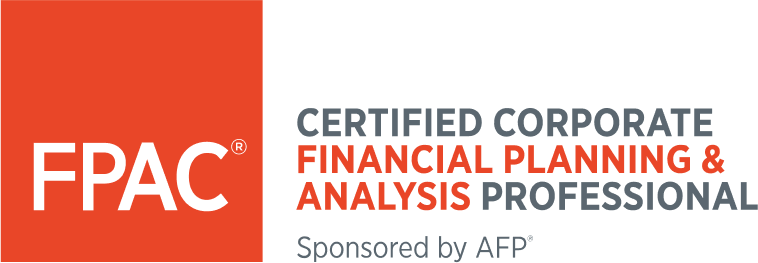FPAC Profile: Educated Ambition: The Inspiring Journey of a Self-Made Senior FP&A Manager

Anthony Davis didn’t take the textbook path to success. “It took 12 years for me to finish undergrad,” he said.
He went straight to college after graduating from high school, but left after a year and started working in retail. A year later he went back to school, completed another year of his studies and left again, this time for two years. After working a number of low-level jobs, Anthony realized it would be “all I’d ever have” if he didn’t complete his education.
“Right then I committed that I wouldn’t stop again until I got my degree,” said Anthony, “even if it meant only taking one class per semester.” For the next seven years, Anthony worked a full-time day job, took classes at night,
and studied well past midnight. After all his hard work, at the age of 30, he earned his bachelor’s in accounting. One month later, he started an M.B.A. program.
Deciding between accounting and FP&A
Anthony had been working for Continental Airlines (before it merged with United) for a few years before he applied for a job in the Finance department. The company was organized by business segment, and each division (e.g., Flight Operations, Maintenance, Catering) had its own finance team.
It was his first FP&A role, and at the same time, his responsibilities were split between accounting (journal entries) and FP&A (budgeting/forecasting activities). But it was that dual role that allowed Anthony to clearly see the difference between accounting and FP&A — and figure out which he enjoyed most. “Performing both aspects in my role at Continental really highlighted the difference between accounting and finance for me,” he said.
Anthony described accounting as the process of telling the story of what the company has already done and said that it seemed confining and reactionary. In contrast, the analysis and forward-looking aspects of FP&A is something he finds far more interesting as it “entails figuring out where the company is — or should be — going in the future and trying to find the best way to get there. Strategically solving problems and being able to accurately predict the future through my forecasts is far more exciting to me,” said Anthony.
This wasn’t a progression Anthony could have predicted at the beginning of his journey. He originally chose accounting as an elective in high school, because “I had no clue what I wanted to do, and alphabetically, it was at the top of the list.”
He went straight to college because “that’s what you’re supposed to do,” and declared accounting as his major, telling himself he’d figure it out later. “Around what would be my junior year, I realized I didn’t like accounting, but there was no way I was changing my major and starting over,” he said.
Having become a firm believer in continual education over the years, after completing his M.B.A., Anthony went on to complete the Executive Leadership Development program at Stanford University Graduate School of Business and earned the CTP and FPAC designations from AFP.
“I believe developing a well-rounded business acumen is best gained from various sources and perspectives,” said Anthony, “and that mode of thinking has been instrumental in my career progression.”
The road to senior management
Today, Anthony is the Senior Manager of Corporate Planning & Treasury for MODEC International Inc., a global supplier and operator of floating platforms for the offshore industry. He started at MODEC 16 years ago as a mid-level analyst preparing budgets and forecasts.
“As far as advancement opportunities go, I have been successful in creating my own,” said Anthony. From the beginning of his time at MODEC, Anthony sought opportunities to expand his area of responsibility. He did this by finding things that needed to be done and taking ownership.
Proactively taking tasks off the plate of the Controller and eventually the CFO, cashflow forecasting led to cash investment and banking management, which led to creating a foreign exchange hedging program and a full-fledged treasury function under his control. Accountability for corporate insurance and risk management fell under his purview in a similar fashion.
And now, with the assistance of his team, Anthony steers and/or performs all routine and ad-hoc corporate finance, treasury, insurance and budgeting processes for the organization. “Essentially any finance-related activity that is not specifically accounting proper or international tax, warrants my involvement in some capacity,” he said.
Walking in this senior manager's shoes
Approximately 40% of Anthony’s job is “relatively routine,” with expected deliverables at expected times. The other 60% is punctuated by uncertainty and involves “dealing with whatever comes down the pike.”
“One day it may be calculating overhead recovery rates, the next day it may be determining how much a proposed new HR policy would affect the bottom line, all while simultaneously trying to open a local bank account for a new subsidiary in a foreign country,” said Anthony.
To be successful in a position like his, Anthony said a comprehensive business acumen is very important, but even more than that, you need to possess analytical skills. “The technical part of the work can be taught,” he said, “but the ability to think and apply what you’ve learned to varying situations is something you need to come to the job already in possession of.”
Relationship-building skills are also very important. “It’s impossible for one person to know everything, and you can’t do it all yourself,” said Anthony. “You need to build a network of people with the knowledge and influence to support you. However, you can’t just be a taker in the relationship, you must first be a giver. I’ve learned that helping others through their respective pain points makes them want to help you when you need it.”
When asked what he is most proud of in his career, Anthony said it can’t be narrowed down to one single achievement. Rather, it’s his overall progression that he is most proud of. “Starting as a Black kid from the ‘hood with no guidance, role models or mentors that looked like me, I was never supposed to achieve this much,” he said. “However, through hard work, the grace of God, and a little help from my trusty crystal ball, I now lead all FP&A, Risk Management and Treasury functions for the U.S.-subsidiary of a multinational oil and gas company and am on track for an even more senior leadership role within the next 6-12 months.”
Where he goes from here
Anthony is transitioning into the next phase in his career, which he said will move him further away from the number crunching and more deeply into strategic management. As such, the skills he wants to expand include mentorship, leadership and development.
One thing Anthony wants others aspiring to a career in finance to know is that there is more than one path into it. While some believe that the only way to be fully qualified for senior positions is to earn your CPA, this was something he was never interested in pursuing. “I am proof that one can be successful in corporate finance without a CPA, provided you still bring essential skills to the table,” he said.
Within MODEC, Anthony has already begun building defined career paths into senior management for non-CPA corporate finance professionals. “Through organizational restructuring, piloting various Employee Resource Groups, and becoming the mentor that I didn’t have, I am particularly focused on providing and promoting opportunities for those currently underrepresented — not only in finance but corporate America as a whole.”
Earning the FPAC
The decision to earn the FPAC was one Anthony made as a means to an end: He wanted to elevate the standing of FP&A by emphasizing its significance and credibility as a stand-alone profession.
“I had already separated the FP&A function from our accounting group, and I was excited to discover the FPAC as it gave recognition and credibility to this focus by demonstrating a quantifiable level of competence,” said Anthony.
To prepare for the FPAC exam, Anthony used the exam prep platform, primarily taking the practice tests over and over. “Any question I missed or concept I wasn’t sure of, I would then go back and research.”
Earning the FPAC credential has provided Anthony with “exciting volunteer opportunities,” such as serving on the FPAC Exam Task Force. As part of the task force, he lends his expertise to the review and development of future certification exam questions.
If you’re thinking about going for the FPAC certification, Anthony would “absolutely recommend it.” He said it is particularly helpful to early- and mid-career finance professionals seeking to advance to a more senior role as it reflects knowledge of the “real-world work I have performed throughout my career in FP&A.”
Further, as a hiring manager, Anthony said it proves to him that applicants have a specific level of competence in FP&A. There is also a certain amount of continuing education required each year to maintain the credential, which “shows a dedication to life-long learning and continual improvement.”
Demonstrate your skills and knowledge of FP&A — start your journey to FPAC certification today!

